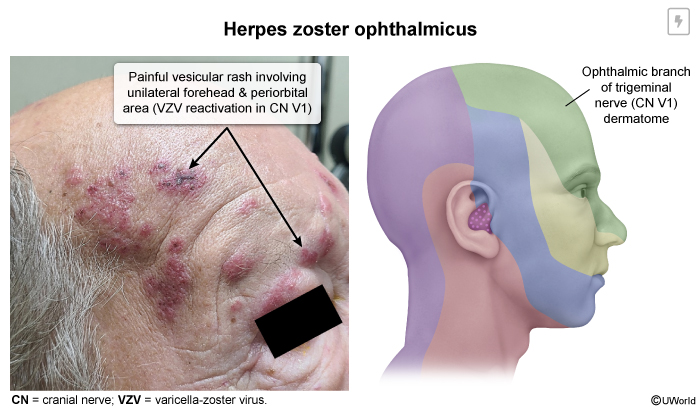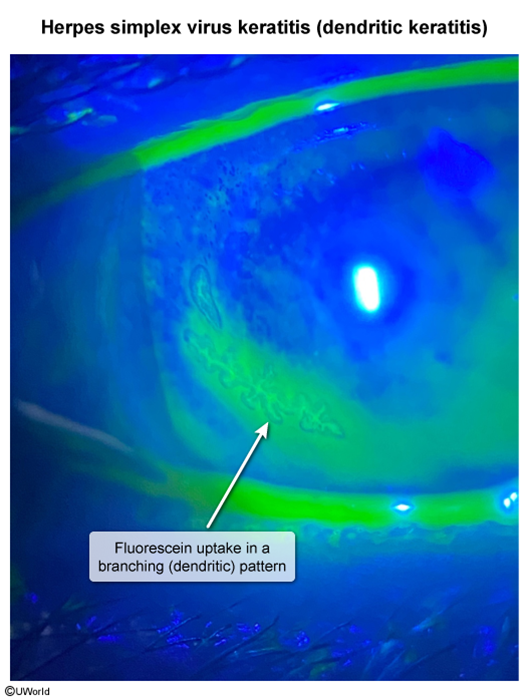Viral Keratitis
Article Sections
Introduction
Viral keratitis is an ocular condition characterized by inflammation of the cornea due to viral infection, most commonly herpes simplex virus. Symptoms typically include unilateral eye pain, redness, photophobia, and watery discharge. Examination with fluorescein stain reveals characteristic dendritic (eg, linear, branching) corneal ulcerations. Viral keratitis is treated with antiviral medications to prevent complications, such as corneal scarring or opacification, which can lead to permanent blindness.
Pathophysiology and risk factors
Viral keratitis typically results from reactivation of latent herpes simplex or varicella-zoster viruses. Following primary infection (eg, gingivostomatitis, chickenpox), the virus is transported retrograde to sensory ganglia, where it often lies dormant for years. Viral reactivation may be triggered by various factors including advanced age, stress, prolonged ultraviolet (UV) exposure, or immunosuppression (eg, HIV).
Continue Learning with UWorld
Get the full Viral Keratitis article plus rich visuals, real-world cases, and in-depth insights from medical experts, all available through the UWorld Medical Library.
Unlock Full AccessFigures

Images
